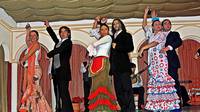
Since Aristotle’s time, the forms of government envisioned by different political ideologies have been the following:
Autocracy.
It is a government in the hand of a single absolute ruler. It is derived from the Greek “autokrateia” – “autos” which means self and “krateia” which means “rule.” An absolute ruler is a despot – someone who insists on his way and will not defer not others. He makes the law, executes the law and interprets the law. He is the lawmaker, the Chief Executive and the judiciary – rolled into one. He is above the law; in effect, he is the law. He has supreme power over the people he governs. An autocratic government is ruled by a king, a monarch, a despot or a dictator. The present-day autocracy is known as totalitarian – a government or a state in which the life and actions of every individual, as well as those of every enterprise, are controlled by a dictator. Plato, a Greek philosopher, believed that the state should be ruled by an intellectual elite – a philosopher king – for he can make the most intelligent and significant decisions for the state. Autocracy can also take the form of temporary emergency rule such as the rule of a military junta and a dictatorial caucus. The dictatorial regime of the late President Ferdinand Marcos under the guise of “constitutional authoritarianism” can also be given as an example.
Oligarchy.
It is a form of government in which power is in the hands of a few. It is derived from the Greek “oligarchein” – “oligos”, which means “few”, and “archein”, which means rule. The rulers are known as oligarchs and aristocrats who govern for their own interests. C. Wright Mills believed that a handful of men composed of the powerful military upper echelons, the corporate rich, and the political elites should make the most significant decisions to steer the ship of government. These economic and political elites tend to act in liaison because they have more or less similar social backgrounds and have developed a commonness of interests, values and attitudes.
Democracy.
It is a form of government by the people, usually through their representatives. It comes from the Greek word “demokrateia” – “demos”, which means “people,” and “krateia”, which means “rule”. It is popularity known as a republic or a representative democracy – “a government of the people, by the people, and for the people”. In the republic, the head of the state is an elected president, who exercises governmental powers from the constitution. A republic is usually guided by a constitution promulgated by the people through their representatives. The constitution defines the kind of government and branches and political instrumentalities thereof. The republic is guided by the general principles of social equality; social justice; equality before the law; the supremacy of the law; separation of powers; the exercise of political, religious and civil freedoms; the right of suffrage; separation of church and state; public accountability; sovereign equality of states; amity and friendly relations with other states; and others similar.
Socialism.
It emerged as the most pervasive political ideology of the 20th century. It was presented as an alternative system against the repression and exploitation of capitalism and the changes brought about by the Industrial Revolution. It arose as a result of the collective efforts of the working class, the proletariat, the laborers, the industrial workers, the peasants, the artisans, and other working classes of people who dream of a more humane and just society. Marx posited the idea of communism, an Utopian state which is truly egalitarian in form. He envisioned the disappearance of the state and the emergence of a classless society. Marx’s profound and emotional call is this: “Workers of the world unite! You have nothing to lose except the change of poverty and exploitation which bound you for centuries!” To attain this Utopian dream, “a dream of a paradise on earth”, a violent revolution is inevitable to bring about the desired structural changes.
Socialims, as a political and economic theory, advocates collective ownership of the means of production and control of distribution. It is based on the belief that all, while contributing to the good of the community, are equally entitled to the care and protection which the community can provide. The theory assumes different forms according to the relative stress laid on its social, economic, and political corollaries. Thus, Marxian Socialism is concerned very largely with the economic issues, and postulates the communal ownership and control of the means of production, distribution and exchange. Christian Socialism stresses the social aspect, making of the theory a way of life. Democratic Socialism stresses the political aspect, accepting a compromise in the economic field between state and private enterprise. All forms agree in being opposed to unbridled capitalism and in seeking equality of opportunity for all members of the community.


















